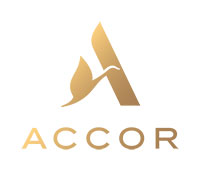Cornell Study Analyzes Hotel Union Negotiating Comeback and Card-check Organizing Strategy
|
Cornell Study Analyzes Hotel Union Negotiating Comeback and Card-check Organizing Strategy
|
Category: North America & West Indies / Carribean islands
This is a press release selected by our editorial committee and published online for free on 2007-04-06
Cornell Study Analyzes Hotel Union Negotiating Comeback and Card-check Organizing Strategy
Applying a strategy of divide and conquer, the union that represents hotel and restaurant workers across North America seems to have accomplished most of its goals in negotiations conducted during summer 2006—and those goals include more than monetary compensation for workers. The conclusion comes from an analysis of the hotel industry negotiations by David Sherwyn and Zev J. Eigen, published in a new report from the Cornell Center for Hospitality Research. The report is available at no charge at: http://www.hotelschool.cornell.edu/chr/research/centerreports.htm
The union, UNITE HERE, planned for several years to make summer 2006 its test point for its new approach to negotiations. Whereas the union had formerly negotiated city by city, in summer 2006, it negotiated chain by chain in several cities at the same time. By splitting off individual chains, the union was able to dislodge the industry’s former solidarity.
A key aspect of UNITE HERE’s plan involved seeking an end to the traditional union-organizing step that calls for a secret ballot of workers who are to be organized. Instead, the union wants to be recognized after a majority of workers have signed cards indicating their interest in a union—and no vote would be taken.
“While the details of the contracts have not been released, it’s clear that the UNITE HERE made large inroads in accomplishing its negotiation objectives,” Sherwyn suggested. “Regardless of the outcome of the negotiations, though, I must point out the political effort that the union is undertaking.”
In the report, Sherwyn and Eigen examine the federal legislation sought by unions that would allow them to organize without secret ballots. The legislation, known as the Employee Free Choice Act, was approved by the House of Representatives early in 2007. The bill, which would end secret-ballot elections in favor of open card checks, has not yet been approved by the U.S. Senate and faces the promise of a presidential veto.
|
|




